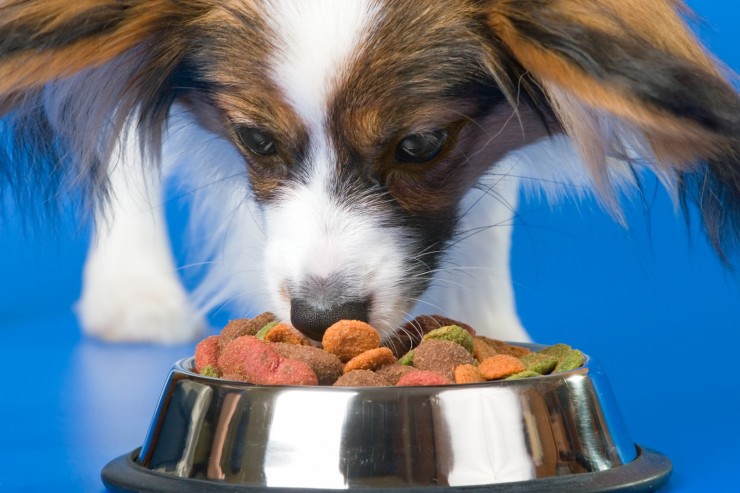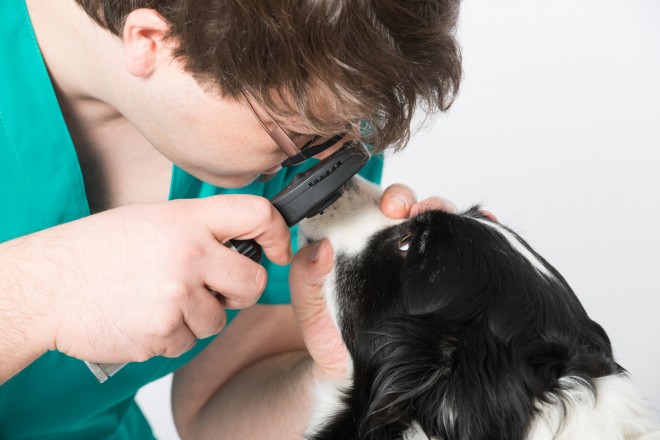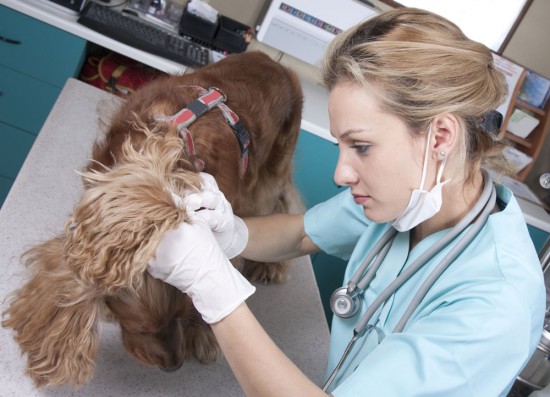

Dog food choices can be complicated for even the most well informed owner, but something that most dog owners are aware of is the fact that generally, even the most basic of brands will offer food for different life stages, generally falling into the categories of puppy, adult dog and mature dog. This is the simplest version of life stage diets, but things can also get a lot more complex too, with certain diets designed to match the needs of the life stages of specific breeds or sizes of dogs, and various other factors as well.
It is important to feed your dog an appropriate food for their age, as different life stages require different combinations of nutrients in order to support optimum health, and selecting the wrong choice of food can potentially affect your dog’s condition. In this article, we will look at six good reasons for feeding the right diet for your dog’s age, and how to know when it is time to swap over to the next stage.
The first stage of the age scale for dog food is puppy, which generally covers the age range from weaning up until around one year of age, or later for some large breeds that are slower to grow and develop. Part of what makes puppy food different from adult food is the balance of essential fatty acids, which enhances healthy brain development and mental acuity, and can even help to boost intelligence.
After the puppy has finished growing, these fatty acids are less essential.
Puppies and juvenile dogs need more protein than older dogs, both because they tend to be highly active, and in order to support their growing bodies. Puppies need to eat a higher amount of calories than an equivalent adult dog of the same breed will in order to grow and develop properly, and puppy food is designed to support both the growth and active life of younger dogs.
So, puppy food is rich in fatty acids and provides good value on the protein front; why can’t you keep feeding it to your adult dog? Well, once your pup has stopped growing, even if they remain highly active, they will not burn as many calories each day as they did when they were growing as well, and so continuing to feed a high calorie, protein rich puppy food can lead to your dog piling on the pounds, as well as missing out on the appropriate nutrition for their age.
One exception to the rule about feeding adult dogs an adult food occurs when it comes to pregnant bitches, and those nursing a litter. These dogs need to eat a significant amount of food- at some stages, as much as double or even more that which they would usually eat- in order to stay healthy, and be able to provide enough nutrients for their pups.
Feeding puppy food to the dam is often recommended at this stage, so that both she and her pups can benefit from the higher calories and protein levels in the food, and also, get the essential fatty acids mentioned above.
Just as the adult dog needs less calories than the growing puppy, so too does the mature dog tend to need less calories than an adult dog at the peak of their life. Older dogs tend to be slightly more sedentary than their younger counterparts, and so feeding a food designed for younger adults that are active all day long can soon lead to obesity as well.
Food for mature dogs is also enhanced to support healthy joints and brain aging, having slightly fewer calories than adult food, but more ingredients designed to keep your dog’s joints supple and their minds active well into old age.
Life stage dog food will come with guidelines on the appropriate age for the food, such as up to one year for puppy food, one year to seven or eight for adult food, and over this age for senior food. However, when it comes to dogs, age is not a binary figure; your dog does not become a completely different dog the day after their first birthday, and so when the time is right to change over onto the next life stage food is something that you should consider on a sliding scale.
Puppies that are still growing past the age of one year can benefit from staying on puppy food for longer, and adult dogs over the age of seven or eight that are still highly active, at a healthy weight and not showing signs of their advancing old age may benefit from staying on adult food, rather than senior food, for a little longer too.
If you’re unsure about when to change your dog over to their next life stage food, or uncertain about which food they should be given, speak to your vet for further advice.
 Five Disadvantages Of Owning Two Or More Dogs
Five Disadvantage
Five Disadvantages Of Owning Two Or More Dogs
Five Disadvantage
 Special Foods and Lifestyle for a Healthy Dog
Special Foods and Lifestyle for a Healthy Dog
Special Foods and Lifestyle for a Healthy Dog
Special Foods and Lifestyle for a Healthy Dog
 How Would You Know If Your Dog Was Losing Their Eyesight?
How Would You Kno
How Would You Know If Your Dog Was Losing Their Eyesight?
How Would You Kno
 Lyme Disease In Dogs
Lyme Disease In D
Lyme Disease In Dogs
Lyme Disease In D
 Ten Reasons Why Dogs Make Better Pets Than Cats!
Ten Reasons Why D
Ten Reasons Why Dogs Make Better Pets Than Cats!
Ten Reasons Why D
Copyright © 2005-2016 Pet Information All Rights Reserved
Contact us: www162date@outlook.com